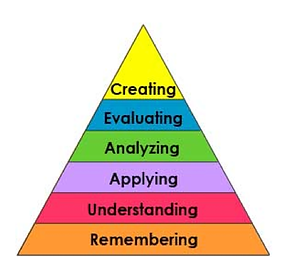Now What?
Description
My pedagogical journey has come to a halt as the weekly module has finished, and the annual evaluation is fast approaching. I began this module with the hope it would provide me with the information I would need for a particular work package of my PhD, however I now know that this is just the start of a continuous process of pedagogical development. Looking back at my journey thus far, and the evolution of my personal pedagogy practice I have become more mindful of my approach to teaching for my students, but also to my own learning. The activity that we were given to book end the module really emphasised how much I have learnt in an 8 week period about teaching and learning. I have always liked to teach. I recntly took the Myers Briggs personality test [1] and though i was sceptical it described me and my personality pretty well. Below is a link to the test:



My type was an ESFJ and I identified with alot of the personlity traits such as: enjoying helping people, being emotionally intellegent and liking order and orgainisaton.Throughout my life I have always jumped at the opportunity to help others learn. Whether it was a peer in class or a friend at home, I have always found happiness in helping others understand. I would have placed a great amount of pressure on myself to know as much as I could about a given subject to always be prepared; otherwise I would feel nervous, anxious and uncomfortable. At undergraduate or second level this might be achievable, but as a PhD student this has been a struggle I have encountered, especially when teaching or demonstrating for undergraduate students.
Feelings
In the first week of my PhD programme I began demonstrating in fourth year physics labs and I was completely over whelmed. I felt totally under qualified to be facilitating these students and in such an important year of their degree. However after a few weeks I was reminded how student driven these labs were and I began to relax into the role. Grading the reports was another hurdle as there was no rubric and I again I felt underprepared, however I manged to get through the reports and provide adequate feedback. I felt like this was too stressful a task and that I really didn’t want to continue with demonstrating, not was aware that this was an essential part of a physics PhD student experience. The pedagogy module began at just the right time for me, in the second semester my labs had changed to first and second year students and this presented another set of challenges and again I felt out of my depth. Week by week my confidence grew and the shared experiences in the group helped to prepare me for situations that may arise. We were encouraged to trial he tools we discussed in class, and that what might work for one person may not work for another. This was really refreshing and I felt excited to challenge myself and my students.
Evaluation
If I put the information and class content aside and look at Dr Barry Ryan’s teaching approach there was a lot to learn. Barry has a constructivist’s perspective and encourages active learning. Constructivists encourage individuals to build on their previous knowledge and recognise the autonomy of a student. They facilitate learning and encourage understanding rather than remembering. [2] This approach made the lectures a lot more engaging using real life examples and encouraging in classes activities to aid in the groups understanding and reflecting. This teaching approach was vital in my understanding of the content of these lectures. In the ideal world I would have had the opportunity to complete this module before any of my demonstrating duties, however my recent experiences with demonstrating helped to contextualise. As much as I love to teach and help others understand my knowledge of the teaching theories and tools that can be utilised to make the learning experience effective was limited before this module. During the early sessions the range of pedagogical approaches was introduced, as well as techniques such as the VARK model [3] to determine the type of information delivery a student is most receptive to. Bloom’s taxonomy [4] also stands out as a valuable tool in not only assessment design but module design also.
The most poignant phrase from the module for me was “You are not the Oracle!!” Not knowing everything is okay and the journey to the answer can be as beneficial to the student as the answer at the end.
